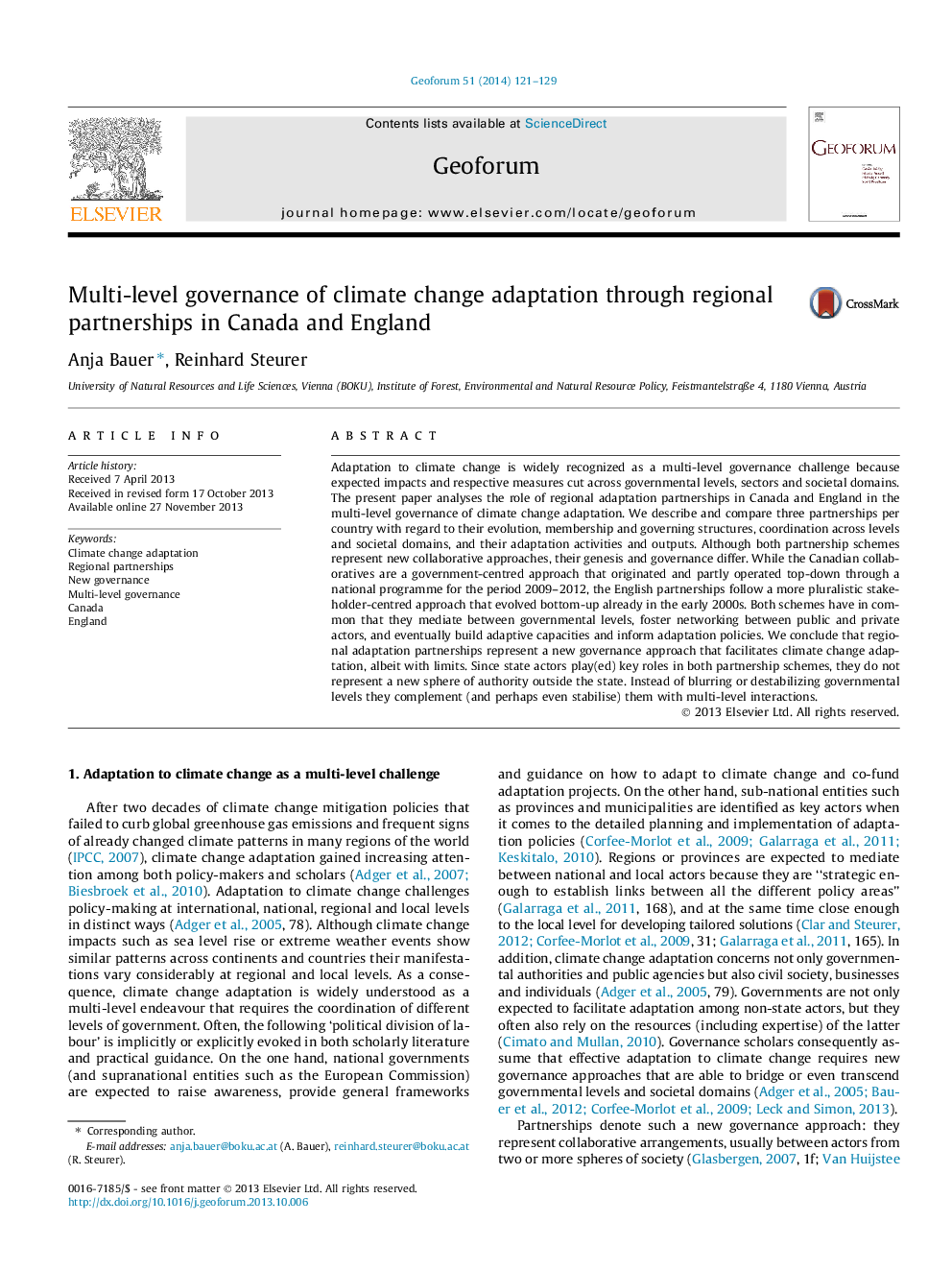| Article ID | Journal | Published Year | Pages | File Type |
|---|---|---|---|---|
| 5073904 | Geoforum | 2014 | 9 Pages |
Abstract
Adaptation to climate change is widely recognized as a multi-level governance challenge because expected impacts and respective measures cut across governmental levels, sectors and societal domains. The present paper analyses the role of regional adaptation partnerships in Canada and England in the multi-level governance of climate change adaptation. We describe and compare three partnerships per country with regard to their evolution, membership and governing structures, coordination across levels and societal domains, and their adaptation activities and outputs. Although both partnership schemes represent new collaborative approaches, their genesis and governance differ. While the Canadian collaboratives are a government-centred approach that originated and partly operated top-down through a national programme for the period 2009-2012, the English partnerships follow a more pluralistic stakeholder-centred approach that evolved bottom-up already in the early 2000s. Both schemes have in common that they mediate between governmental levels, foster networking between public and private actors, and eventually build adaptive capacities and inform adaptation policies. We conclude that regional adaptation partnerships represent a new governance approach that facilitates climate change adaptation, albeit with limits. Since state actors play(ed) key roles in both partnership schemes, they do not represent a new sphere of authority outside the state. Instead of blurring or destabilizing governmental levels they complement (and perhaps even stabilise) them with multi-level interactions.
Related Topics
Social Sciences and Humanities
Economics, Econometrics and Finance
Economics and Econometrics
Authors
Anja Bauer, Reinhard Steurer,
